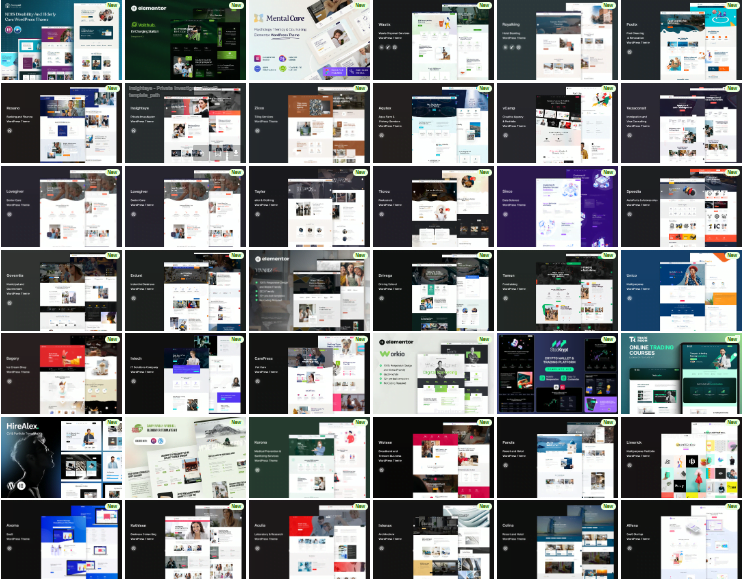No products in the cart.
Understanding the Role of AI Tools in Modern Workflows
Artificial intelligence (AI) tools are increasingly becoming integral to modern workflows across a multitude of industries. The transformation brought about by these technologies influences job functions, operational efficiency, and competitive advantage. AI systems leverage vast amounts of data to provide insights and predictive analytics, enabling professionals to make informed decisions quickly and effectively.
In the realm of data analysis, AI tools enhance workflow by automating repetitive tasks and uncovering patterns that may not be immediately apparent to human analysts. For instance, machine learning algorithms can process large datasets, identify correlations, and generate actionable insights, all of which streamline the decision-making process. This capability is particularly valuable in sectors such as finance, healthcare, and marketing, where timely and accurate data interpretation is critical.
Beyond data analysis, AI tools are also revolutionizing creative tasks. For example, applications utilizing AI-assisted design allow professionals to create complex visual content with minimal effort, thereby reducing the time spent on tedious tasks. These AI-driven solutions empower creative individuals to focus on higher-level strategic thinking and innovation, ultimately leading to enhanced productivity.
The increasing reliance on AI technologies also extends to customer service. Tools equipped with natural language processing facilitate real-time interaction with clients through chatbots and virtual assistants. This not only improves client satisfaction by providing immediate responses but also allows human agents to dedicate their efforts to more complex inquiries that require a personal touch.
In summary, the integration of AI tools into contemporary workflows has led to a paradigm shift in how professionals approach both routine and intricate tasks. By streamlining processes and enhancing decision-making capabilities, AI tools are not merely augmenting human effort but are redefining the roles and responsibilities within various industries. As we explore specific AI tools in later sections, it is essential to acknowledge the transformative impact they have on everyday work dynamics.
Top 10 AI Tools You Need to Know
As technology continues to evolve, professionals across various industries increasingly rely on artificial intelligence (AI) tools to enhance their productivity and efficiency. Here is a curated list of ten essential AI tools that every professional should consider integrating into their workflow, each accompanied by a brief overview of its functionalities and primary use cases.
1. TensorFlow: Developed by Google, TensorFlow is an open-source framework for machine learning and deep learning projects. Its flexible architecture allows professionals to easily build and train AI models, making it ideal for tasks such as image recognition and natural language processing.
2. IBM Watson: This powerful AI platform assists organizations in analyzing large amounts of data and developing intelligent applications. Watson’s capabilities include natural language processing, machine learning, and data visualization, making it suitable for industries such as healthcare and finance.
3. Hootsuite Insights: Utilizing AI-driven analytics, Hootsuite Insights provides social media managers with valuable data regarding audience sentiment and engagement. This tool helps professionals optimize their social media strategies based on real-time feedback.
4. ChatGPT: A language processing AI, ChatGPT excels in understanding and generating human-like text. It can be utilized for drafting content, answering customer inquiries, and even generating creative writing, streamlining communication processes for many businesses.
5. Tableau: This data visualization tool harnesses AI to aid professionals in interpreting complex datasets quickly. It supports interactive visualizations and dashboards, allowing stakeholders to make informed decisions based on data insights.
6. Grammarly: This writing assistant uses AI to suggest grammatical corrections, stylistic improvements, and vocabulary enhancements. It is essential for professionals who wish to refine their written communication and maintain high-quality standards in documents and emails.
7. Salesforce Einstein: Integrating AI into customer relationship management (CRM), Salesforce Einstein provides valuable insights into customer behaviors, enabling businesses to enhance sales strategies and improve customer experiences.
8. Microsoft Azure Machine Learning: This cloud-based service offers a robust environment for building and deploying machine learning models. Professionals can use Azure to streamline their data processing workflows and gain predictive insights efficiently.
9. Hugging Face Transformers: A library designed for natural language processing, Hugging Face Transformers simplifies the process of implementing state-of-the-art AI models for text understanding and generation, making it popular among developers and data scientists.
10. Zapier: An automation platform that connects different applications, Zapier uses AI to streamline repetitive tasks, allowing professionals to focus on more strategic aspects of their job rather than tedious data entry and management.
These AI tools provide an extensive range of functionalities that address specific challenges in various business environments. By leveraging these technologies, professionals can gain a competitive edge in today’s increasingly tech-driven markets.
How to Choose the Right AI Tool for Your Needs
Choosing the right AI tool can significantly impact the success of both personal projects and business objectives. It is essential to evaluate your specific needs and requirements carefully. Start by identifying the nature of the tasks you wish to automate or enhance with artificial intelligence. Understanding whether you need AI for data analysis, customer service, content generation, or predictive analytics will help narrow down your options. Different AI tools excel in different domains, so aligning the tool with your task is crucial.
Another important factor is the technical skills required to effectively implement and use the AI tool. Some tools may demand a higher level of expertise, while others may cater to users with minimal technical background. If the potential users are not technically proficient, opting for a more user-friendly AI solution can spare time and effort in training and onboarding.
Budget constraints also play a significant role in the selection process. AI tools come in various price ranges, from free open-source platforms to subscription-based models with premium features. It is advisable to assess your budget and find a tool that offers the functionalities you require without compromising on performance or quality.
Scalability is another vital aspect. As your business or project grows, the chosen AI tool should accommodate increased workloads and user demands. Selecting scalable AI solutions ensures that you can adapt easily, maintaining efficiency throughout various phases of growth.
Lastly, consider the integration capabilities of the AI tool with your existing systems. Seamless integration with current software solutions helps streamline processes, reduces operational disruption, and enhances overall productivity. By thoughtfully evaluating these critical factors, professionals can make well-informed decisions about selecting the most suitable AI tools for their specific needs.
The Future of AI Tools: Trends and Predictions
The evolution of AI tools has ushered in a new era of technological advancements, profoundly altering how professionals conduct their work. As we delve into the future, it is essential to recognize several key trends shaping the landscape of AI applications. One of the most significant trends is the focus on enhancing user experience. As AI technology advances, tools are becoming more intuitive, allowing users—regardless of their technical expertise—to harness the power of artificial intelligence effectively. This shift towards user-friendly interfaces is expected to democratize access to AI capabilities, making them available to a broader audience.
Another critical trend is the move towards increased accessibility. With the rise of cloud-based AI solutions, professionals in various fields can now access sophisticated tools without hefty upfront investments in hardware. This shift not only enables small businesses and startups to compete but also encourages innovation by allowing a diverse range of organizations to integrate AI into their operations. Organizations are also advised to invest in training their workforce, as understanding these AI tools will become essential for future employment prospects.
Furthermore, ongoing innovations in machine learning are predicted to unlock new applications of AI across industries. In sectors such as healthcare, finance, and marketing, AI tools are expected to provide deeper insights and predictive analytics, allowing professionals to make data-driven decisions. As AI continues to evolve, organizations must remain vigilant and adaptable, integrating the latest advancements into their workflows to stay relevant in a rapidly changing environment. Ultimately, the future of AI tools promises not only efficiency and productivity gains but also a transformative impact on how we approach our work and the opportunities available in our careers.
 All Products
All Products

